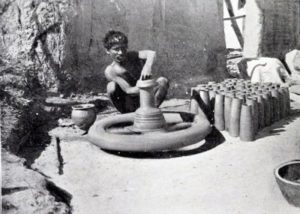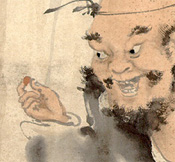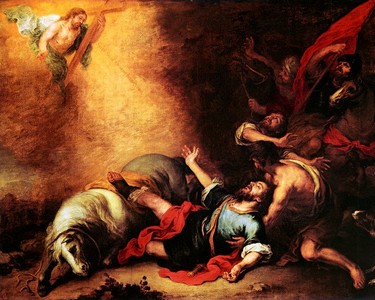– What do we have of human knowledge and divine knowledge?
“Chickens cackle and dogs bark —
This is what men know.
Although they may have great knowledge,
They cannot explain whence they have evolved.
Nor can they surmise with ideas what they will become.” – Chuang Tzu
Such is human knowledge. For awakening, we need divine knowledge.
“The world is rich in human knowledge, but lacks divine knowledge.” Augustine
To understand divine knowledge, or even to begin to acquire it, we must ourselves become divine, through changing our level of being.
Different types of knowledge
We were taught that knowledge is expressed in words and can be collected. This is the knowledge of the intellectual center. Each of our centers has its own kind of knowledge. If we learn a craft, knowledge of this enters into the moving center. The knowledge or ‘words’ for this consist of visualizations of movements, of methods and procedures. For a chef, knowledge includes the various flavors and their combinations. The flavors are the ‘words.’ In the emotional center, knowledge consists of various feelings.
There must also be a knowledge held by higher centers. We are told that the language of higher emotional center is myths. Elements of these must somehow compose the words that combine into its knowledge. Higher mental center has symbols and numbers to express its knowledge.
There is a knowledge for men number 1, 2, and 3, a knowledge for men number 4, number 5 and so on. The knowledge of the first category is knowledge of worldly things and how to live in the world. Knowledge number four must be the knowledge of how to awaken. Knowledge number five must be that knowledge of how to remain awake and not fall back to sleep.
Adult native English speakers use around 5,000 words in speaking, and in twice as many in writing. The language of the Fourth Way system contains around one hundred fifty terms. This means that only a fraction of the words in the English language relate to the experience of a man number four, that is, to waking up from sleep. If the language of higher emotional center is myths and that of the higher mental center, symbols, perhaps the number of elements in the language get fewer and fewer.
Craftsmen, being and knowledge

Potter at his wheel
“Take the example of a craftsman who can perform his craft with astonishing perfection. It must be that above a certain level the craft becomes spiritual. Does it at that level not have to be balanced with more knowledge to grow even more? Certainly, the level of knowledge cannot go on too far without raising one’s level of being.”
Yes, we can only use knowledge to the extent we can put it into practice, in proportion to our level of being. If our being changes, we get more out of the same ideas.
Craftsmen can discover new techniques and methods to improve their craft, or learn things from their colleagues, but that is not the kind of knowledge that we mean here. This, I believe, has to come from a higher level and cannot be discovered or invented.
Very much and very little

Li Tie Guai with the pill of immortality
“To know means to know all. To know a part of something means not to know. It is not difficult to know all, because in order to know all one has to know very little. But in order to know this little one has to know pretty much. So we have to start with ‘pretty much’, with the idea of coming to this ‘very little’ which is necessary for the knowledge of all.” Ouspensky, The Fourth Way.
All the thousand details of the Gurdjieff system are the ‘pretty much’. The ‘very little’ is knowing how to be present, right now. It is actually simple but it is the tip of the pyramid of this system.
We must suppose that higher school knows much that we do not know, or even cannot know, due to not having the higher centers working permanently. Further, we must suppose that, compared to what is possessed by higher school, the knowledge of the Absolute is infinite. The system of Gurdjieff is only crumbs from the table of higher school. If it is crumbs, what would the main course be?
Changing our being
When I reread The Fourth Way, In Search of the Miraculous, or the Psychology I often find a passage that I do not remember before. This is because my level of being changes and something stands out that before was only in the background. There seems to be a law that we must totally use or exhaust what we already have before receiving something new. We do this by putting knowledge into practice. At some point we can discard what we used to have like a set of old clothing.
“As a man abandons worn-out clothes and acquires new ones, so when the body is worn out a new one is acquired by the Self, who lives within.” – Bhagavad Gita
Recognizing the new
Ouspensky writes, in the introduction to the Psychology, “I found that the chief difficulty for most people was to realise that they had really heard new things, that is, things that they had never heard before.
“They did not formulate it for themselves, but in fact they always tried to contradict this in their minds and translate what they heard into their habitual language, whatever it happened to be. And this certainly I could not take into account.
“I know that it is not an easy thing to realize that one is hearing new things. We are so accustomed to the old tunes, and the old motives, that long ago we ceased to hope and ceased to believe that there might be anything new.
“And when we hear new things, we take them for old, or think that they can be explained and interpreted by the old. It is true that it is a difficult task to realize the possibility and necessity of quite new ideas, and …I wish you not to miss them, and to try not to interpret them in the old way.”
The ideas of divided attention, self-remembering and all else in the system were totally new and unexpected for me, as Ouspensky describes. It was knowledge that, with the help of school, allows one to change level of being to man number four.
In the same way, there must be a knowledge from higher school that will allow us to go on to the next level.
David Tuttle is the author of a Facebook page and has a closed group discussion on using the Fourth Way. For more, see https://www.facebook.com/groups/1394109020622401/.
